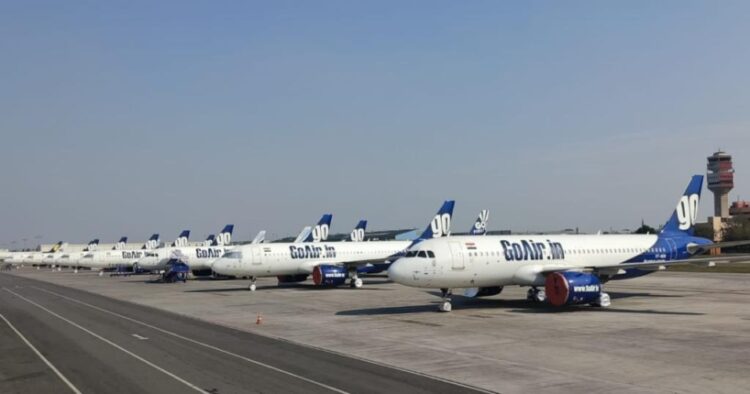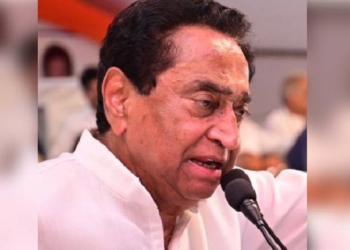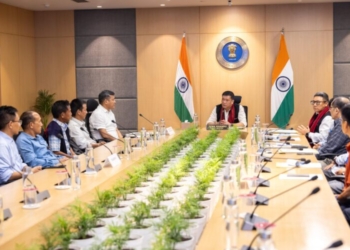Chennai: With nearly 50 per cent of its A320neo fleet grounded, India’s third largest airline Go Airlines (India) Limited on Tuesday approached the National Company Law Tribunal (NCLT) for resolution under Section 10 of the Insolvency Bankruptcy Code (IBC).
The airline said that it has approached the NCLT “due to the ever-increasing number of failing engines supplied by Pratt & Whitney’s International Aero Engines, which has resulted in Go First (airline brand) having to ground 25 aircraft (equivalent to approximately 50 per cent of its Airbus A320neo aircraft fleet) as of May 1, 2023.”
“The percentage of grounded aircraft due to Pratt & Whitney’s faulty engines has grown from 7 per cent in December 2019 to 31 per cent in December 2020 to 50 per cent in December 2022. This is despite Pratt & Whitney making several ongoing assurances over the years, which it has repeatedly failed to meet,” Go Airlines said.
According to Go Airlines, it has been forced to apply to the NCLT after Pratt & Whitney, the exclusive engine supplier for its Airbus A320neo aircraft fleet, refused to comply with an award issued by an emergency arbitrator appointed in accordance with the 2016 Arbitration Rules of the Singapore International Arbitration Centre (SIAC).
“That order directed Pratt & Whitney to take all the reasonable steps to release and dispatch without delay to Go First at least 10 serviceable spare leased engines by April 27, 2023 and a further 10 spare leased engines per month until December 2023, with the objective of Go First returning to full operations and achieving its financial rehabilitation and survival,” the airline added.
Continuing further, Go Airlines said that even if Pratt & Whitney complied with the arbitration award, it would be able to resume full operations by August/September 2023.
“Despite the emergency arbitrator’s order, however, at the date of this press release, Pratt & Whitney has failed to provide any further serviceable spare leased engines at all, and has stated that there are no further spare leased engines available for it to comply with the emergency arbitrator’s award,” Go Airlines said.
The airline said it has resorted to approach NCLT despite the infusion of Rs 3,200 crore by the promoters into the airline in the last three years of which Rs 2,400 crore was injected in the last 24 months, and Rs 290 crore in April 2023 alone.
Thus, the total promoter investment in the airline since its inception is approximately Rs 6,500 crore.
The airline has also received significant support from the Government of India’s exceptional Emergency Credit Line Guarantee Scheme, the company said.
The grounding of close to 50 per cent of its A320neo fleet due to the serial failure of Pratt & Whitney’s engines, while it continued to incur 100 per cent of its operational costs, has set the airline by Rs 10,800 crore in lost revenues and additional expenses.
Moreover, the airline has paid Rs 5,657 crore to the lessors in the last two years of which approximately Rs 1,600 crore was paid towards lease rent for non-operational grounded aircraft from the funds infused by the promoters and the Government of India’s Emergency Credit Line Guarantee Scheme.
In order to recover these (and other) losses, Go Airlines sought compensation of approximately Rs 8,000 crore in the SIAC arbitration.
According to the airline, it has been facing recurring and persistent issues with the GTF (geared turbofan) engines supplied by Pratt & Whitney, coupled with Pratt & Whitney’s failure to repair those engines and/or provide sufficient spare leased engines as it was required to do pursuant to its obligations under the relevant agreements.
As a result of Pratt & Whitney’s failure to comply with the emergency arbitrator’s award, Go Airline is being driven to take steps to enforce the award in the US and other international jurisdictions, the company said.
The additional consequence of Pratt & Whitney’s actions has also driven some lessors to repossess aircraft, draw down letters of credit and notify further withdrawal of aircraft.
That would result in a severe depletion in the number of aircraft available for Go Airlines to operate going forward, thereby making it further unfeasible to continue its operation and meet its financial obligations.
Prior to the acute issues caused by the serial failure of Pratt & Whitney’s engines, Go First enjoyed a market share of 10.8 per cent in FY20, and was consistently profitable from 2010-2020.
(IANS)

















